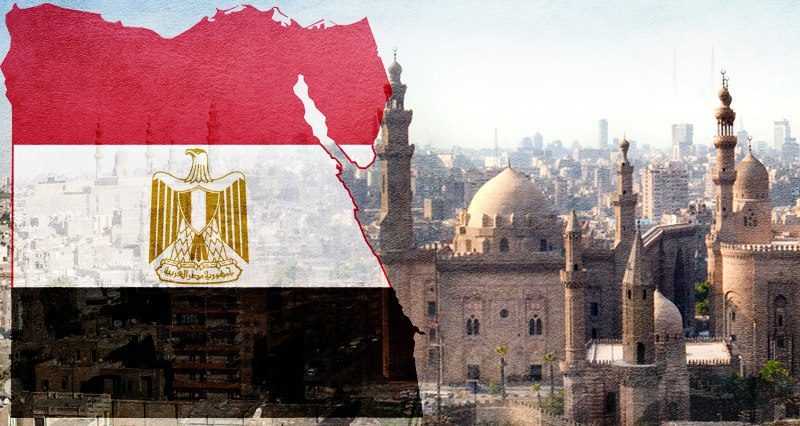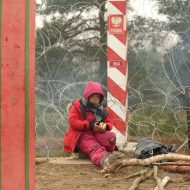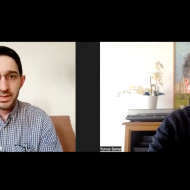By Nardine Ali
The Egyptian political and social scenes were on shaky water over the past two weeks due to changes domestically and regionally that required President Abdel Fatah Al Sisi’s intervention and speedy comment to assure the Egyptian people about their future.
Is there an imminent war on Egypt’s western borders?
After weeks of escalations between Egypt and Turkey, Egypt’s President Abdel Fatah Al Sisi has finally addressed the Libyan issue in a powerful speech that showcased his vision on ending the crisis in Libya.
Whileinspecting the Western Military Zone on June 20, 2020, Sisi stated that any Egyptian direct intervention in Libya has international legitimacy.
“We are not invaders; we only want a stable, safe and developed Libya,” Sisi said. However, he stressed that “Libya’s Sirte and Al-Jufra airbase are considered red lines for Egyptian national security.”
Accompanied by the heads and elders of Libyan tribes and his military leaders, Sisi expressed his country’s readiness to support the Libyan brothers upon request by providing the tribe’s youth with training and arms under the supervision of leaders of the Libyan tribes.
Egypt’s modern Armed Forces have only been involved in three wars in three decades outside the Egyptian borders, in Yemen in 1962, in Nigeria in 1967, and Kuwait in 1991, nonetheless, Sisi has urged his army leaders to be ready to be called for duty, inside or outside Egyptian borders.
Commenting on the recent developments in the Libyan scene, Egypt’s former foreign minister and former secretary-general of the Arab League Amr Moussa warned against the Turkish tutelage in the Arab region, explaining that Turkey has made military moves in three locations in the past few days, in northern Iraq, northern Syria and Libya.
“Turkey has a strategic power given the fact that it is a NATO member and has strong ties with the United States of America and Russia, as well as an intertwined interest with the European Union,” the veteran diplomat said during a televised interview on Sky News Arabia, adding that Ankara would never have a military existence in Libya without the consent of the western powers, who are interested in keeping the situation in Libya as it is.
“Those powers do not want Al-Sarraj, the head of the government in Tripoli, nor General Haftar, the leader of the so-called Libyan National Army,” Moussa added, referring the deterioration in the Arab region to the division between Arabs and the absence of a unified stance towards the major issues in the Middle East.
Meanwhile, the former assistant foreign minister Mohamed Badr Eddine said in his article published on Almasry Alyoumon June 29, that the Turkish progress in Libya does not mean that the military response is the only option, only that it should not be ruled out.
“The peace process in Libya requires using all the state’s tools, from political, economic and media efforts, until the rational usage of military power,” the diplomat said in an article titled “Movement strategies in the Libyan crisis,” adding that threatening the use of power, does not necessarily mean resorting to it.
In its editorial on July 1st, Al Ahram Weekly asserted that whenever Egypt’s national security is confronted with direct threats, it [Egypt] should prove that it has another face to show in order to defend its people, stability and security, calling on the United Nations to bear its responsibility to defuse the “needless military clashes” and force the warring parties to return to the negotiating table.
GERD: Negotiations on the fate of the Nile are at an impasse
Ethiopia between Egypt’s pursuit at the UN and internal chaos
Ethiopian Prime Minister Abiy Ahmed is in hot water, domestically and regionally, especially after the escalation by the Egyptian government that took the file of the Grand Ethiopian Renaissance Dam (GERD) to the United Nations Security Council (UNSC) on June 19, calling it to bring Ethiopia back to talks for a “fair and balanced solution” for both Egypt and Sudan, calling it [Ethiopia] to refrain from unilateral acts, warning that filling the dam without a deal “constitutes a clear and present danger to Egypt” with repercussions that “threaten international peace and security,” according to Egypt Today,
In his speech at the UNSC meeting on June 29, Egyptian Foreign Minister Sameh Shoukry recognized Ethiopia’s right in developing its resources and the welfare of the Ethiopian people, meanwhile, he voiced his concern over the threat of the megadam to the welfare, wellbeing, and existence of millions of Egyptian and Sudanese citizens.
Meanwhile, United Nations Secretary-General Antonio Guterres has called on Egypt, Ethiopia and Sudan, to peacefully achieve a mutually beneficial agreement,asserting that the United Nations is not looking for any leadership role in these efforts.
On the other hand, on June 25, the three countries agreed on forming an African Union-sponsored committee includes legal and technical experts from the three countries to draft a final binding deal on the dam to prevent Ethiopia from filling the dm before finalizing an agreement, despite Addis Ababa’s declaration last month of commencing the filling in July, with or without an agreement with the downstream countries, according to Egyptian Streets.
In an interview with Aljazeera on June 22, Ethiopian Foreign Minister Gedu Andargachew challenged the Egyptian neighbours saying: “No internal or external powers can stop GERD completion,” adding that “Ethiopia will not accept any agreement that can deny its right in developing its resources on Nile River.
Domestically, PM Ahmed faces a fierce public outrage after the assassination of the famous singer and activist Haacaaluu Hundeessaa in Addis Ababa on June 29, which ignited clashes between security forces and protesters in the Ethiopian town of Ambo on July 2, causing the injury of six mourners who tried to attend the funeral, and the death of 80 people, which led the government to shut down the internet across the nation, according to Access Now.
The Egyptian journalist and columnist Suleiman Gouda blames US representative at the UN, Kelly Craft,for calling on Egypt, Ethiopia and Sudan to not take unilateral action that might undermine the dam negotiations, pointing out that Egypt has nothing to do with the Ethiopian procrastination, especially given that the US witnessed the intransigence of the Ethiopian party while brokering the latest round of negotiations that took place in Washington DC in January 2020.
“Egypt and Ethiopia can never stand on equal foot with regard of the GERD negotiations,” Gouda said in an article titled “We are not equal when it comes to GERD”, adding that Craft can direct her advice to Addis Ababa, whose intentions have pushed Cairo to resort to the UN and the AU.
Egypt commemorates 7th anniversary of the overthrow of Muslim Brotherhood regime
On June 30, Egypt commemorated the 7th anniversary of the removal of the Muslim Brotherhood from Egypt’s governance in 2013. President Abdel Fatah Al Sisi said that the June 30 Revolution will remain vivid in all generations’ memory, saying that it preserved the genuine Egyptian identity.
On June 30, 2013, Egypt witnessed mass protests calling for the step down of the late President Mohamed Morsi, one the Muslim Brotherhood’s leaders, leading to toppling Morsi by the aid of the Armed Forces, led by the then-defence minister Abdel Fatah Al Sisi.
Nardine Ali is an Egyptian journalist, analyst and researcher based on Cairo. She is an expert on Middle East affairs.









A very balanced and realistic analysis for the political scene